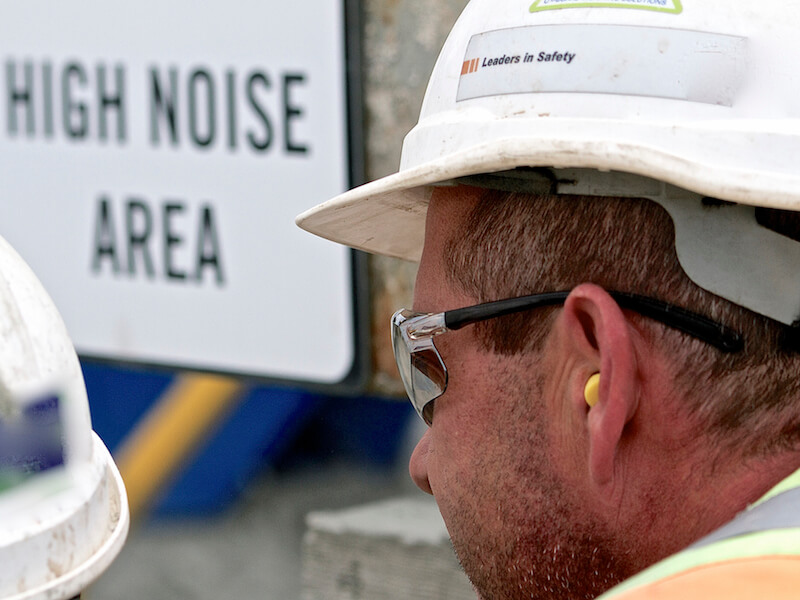
A loud workplace isn’t very good for your ears (or your concentration, for that matter). Even modest noise, when experienced for many hours a day, can start to undermine the health of your hearing. That’s why it’s pretty smart to begin asking questions like, “what level of hearing protection do I need”?
It’s not common knowledge that numerous levels of hearing protection are available. But when you take a moment to consider it, it makes sense. A truck driver won’t require the same amount of protection that a jet engine mechanic will.
Levels of Hearing Damage
The fact that 85dB of sound can start to harm your ears is a standard rule of thumb. Putting sound into context with regards to its decibel level and how dangerous it is, isn’t something the majority of us are used to doing.
Eighty-five decibels is approximately how loud city traffic is when you’re driving your car. No biggie, right? Wrong, it’s a big deal. At least, it’s a big deal after several hours. Because it isn’t just the loudness of the noise that you need to be aware of, it’s how long you’re exposed.
Common Danger Zones
It’s time to think about hearing protection if you’re exposed to noise at 85 dB or more for 8 hour days. But that’s not the only threshold you should be aware of. If you’re exposed to:
- 90 dB (e.g., lawnmower): Damage will start to occur to your ears if you’re exposed to this volume of noise for 4 hours a day.
- 100 dB (e.g., power tools): Your ears will be injured when exposed to this level of noise for 1 hour a day.
- 110 dB (e.g., leaf blower): Damage to your hearing takes place after 15 minutes of exposure to this noise level.
- 120 dB (e.g., rock concert): If your exposed to this level of noise for any amount of time, your hearing can be damaged.
- 140 dB (e.g., jet engine): This amount of noise will cause immediate damage and probably pain to your ears.
When you’re going to be exposed to these volumes of sound, use hearing protection that will bring the volume in your ears down below 85 dB.
Find a Comfortable Fit
The effectiveness of ear protection is quantified by something called a Noise Reduction Rate, or NRR. The higher the NRR, the quieter your world will become (temporarily).
It’s very important that you select hearing protection with a high enough NRR to effectively protect your hearing (and your workplace will usually make suggestions about what level might be appropriate).
But there’s another element to think about also: comfort. As it happens, comfort is extremely important to keeping your ears healthy. This is because you’re not as likely to actually wear your hearing protection if it isn’t comfortable.
Hearing Protection Options
There Are Basically Three Options:
- Earmuffs.
- Earplugs that sit just outside of the ear canal.
- Earplugs that sit within the ear canal
Each type of protection has advantages and disadvantages, but much of your hearing protection choices will depend upon personal preference. Earmuffs are the best option for individuals whose ears are irritated by earplugs. For other individuals, the ability to put earplugs in and leave them in is a better solution (of course, at the end of the workday you will need to take them out for a good cleaning).
Consistently Use Protection That Works Best For You
Comfort is significant because any lapse in your hearing protection can lead to damage. If earmuffs are scratchy and uncomfortable you’re more likely to take them off for short periods and that can have a negative impact on your hearing over time. So the most important decision you can make is to choose hearing protection that you’re comfortable leaving in place during your workday.
You’re ears will stay happier and healthier if you find the correct degree of hearing protection for your situation.
References
https://www.cdc.gov/nceh/hearing_loss/what_noises_cause_hearing_loss.html